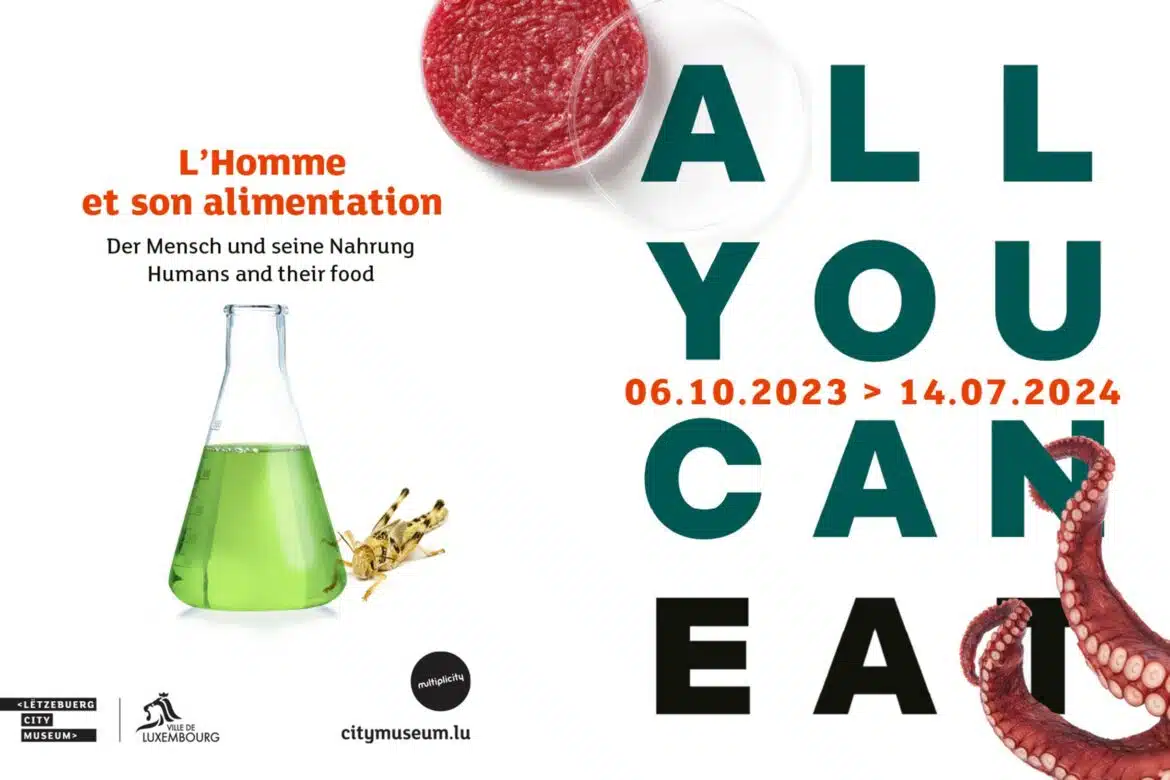This post is also available in: ![]() Deutsch
Deutsch ![]() Français
Français
Lëtzebuerg City Museum – From 06/10/2023 to 14/07/2024
Humans find themselves in a situation of constant food dependency. At the same time, they are subject to restrictions and constraints on eating – for, among other things, climatic, economic or cultural reasons. The exhibition shows the factors that influence our diet and examines how this relationship has changed throughout history and what effects it has on us and our environment. Starting with the natural and the archaic – namely mother’s milk and traditional agriculture –, the exhibition ends with the food of the future.
The exhibition follows the path of food through its industrial processing and sale to its preparation and consumption. A separate room is dedicated to meat and deals with hunting, fishing and livestock breeding, as well as ethical issues of animal welfare.
The second part focuses on the contrast between scarcity and abundance. Although the agricultural and food industry has never produced such large quantities, hunger still exists in many countries. At the same time, about one third of the food produced worldwide ends up as rubbish. Where hunger has virtually disappeared in industrialised countries, people now suffer from diseases linked to overeating and “junk food”.
Finally, two complementary rooms in the middle of the exhibition deal with national and international food cultures. Using Luxembourg as an example, they raise the question of whether one can speak of traditional and local dishes at all, in view of the many external influences.
In Western countries, eating has lost its sacred aspect and has become a purely functional act that at best presupposes a taste experience. The multiple implications of food production and the long journey food takes from the field to the plate are usually ignored. In a dozen interviews, the exhibition gives voice to individuals and local organisations working for fairer and more sustainable food in Luxembourg and elsewhere. In view of the current and future changes in a crisis-ridden world, the question arises as to what solutions might look like that ensure a more nature- and people-friendly food system.
Visitors can expect to find more than 400 objects, most of which were produced and/or used on the present territory of the Grand Duchy. Luxembourg, however, serves only as an example to analyse the relationship between man and his food in a universal perspective.
Educational stations in each exhibition room allow the youngest visitors to discover the various themes in a playful and participatory way, with the Gromperekichelchen (the traditional Luxembourg potato pancake) serving as a common thread. An extensive programme of events (films, workshops, lectures and guided tours) accompanies the exhibition.
In parallel with All You Can Eat, the Cercle Cité hosts the exhibition Hors-d’œuvre, dedicated to the theme and metaphor of food in contemporary art (20.10.2023–21.01.2024).
More information: www.citymuseum.lu


